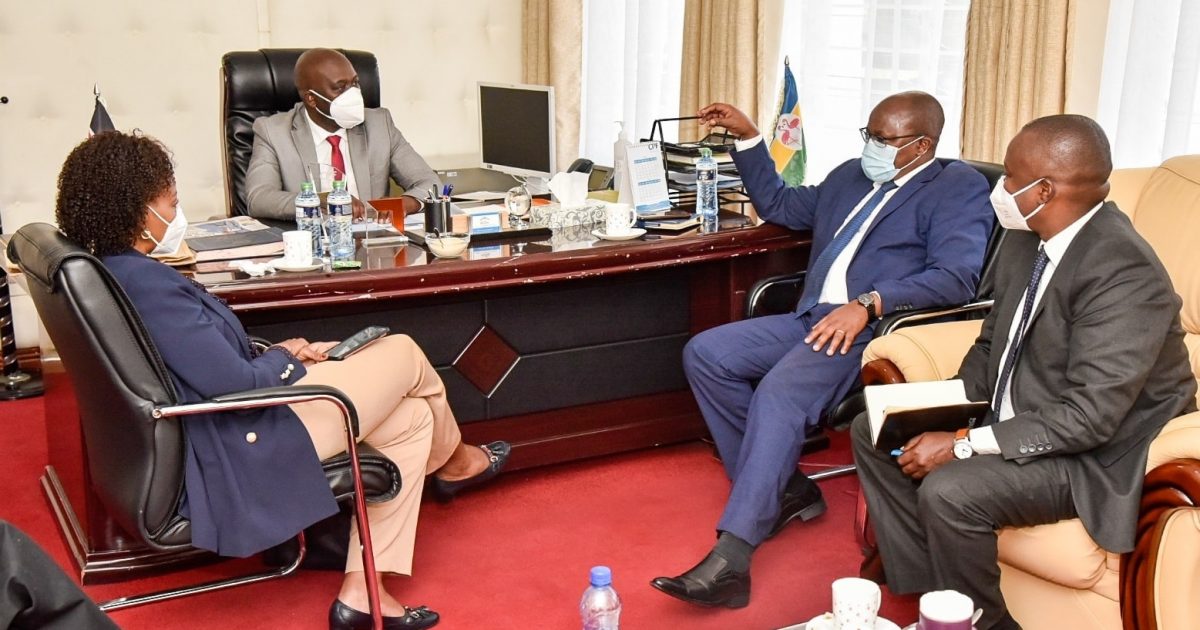Kenya’s manufacturing sector is losing over Sh.800 billion annually from purchase of counterfeits and other illicit forms of trade.
The Trade, Industry and Enterprise Chief Administrative Secretary (CAS), Lawrence Karanja is concerned that corrupt and greedy business operatives are taking advantage of the Covid-19 pandemic to flood the country with low quality masks, sanitisers, and soaps which were presenting fresh risks to Kenyans.
Speaking during a sensitisation programme on counterfeits held for business community in Nakuru, Karanja observed that illicit goods not only endangers health but also denies the government revenue.
“The universal healthcare agenda is vulnerable to the massive supply of fake drugs. A staggering 30 per cent of alcoholic drinks in the market are counterfeit. Others are sub-standard agricultural inputs that include fertilizer and pesticides which compromise food security.
The construction industry that is expected to deliver affordable housing is also affected by counterfeit electrical goods, cement and other materials. That is one of the reasons we see buildings collapsing,” said the CAS.
The Nakuru Deputy Governor, Dr. Eric Korir said effective check on illegitimate trade has the potential of expanding Kenya’s annual value addition on manufactured goods from Sh. 650 billion to over Sh. I trillion annually and raising sector’s economic output from 10 to 15 percent within a few years.
Dr. Korir suggested that the malpractice be addressed as judiciously as other crimes like human trafficking, corruption, money laundering and terrorism, because of its harsh effect on the economy and people’s health.
He said though Nakuru had one of the best business friendly policies, laws and operating environment, local industries were losing more than 40 per cent of their potential annual sales to counterfeits.
“We need to step up efforts to intercept counterfeit and contraband goods in the County with the operationalization of the Inland Container Depot (ICD) at Maai Mahiu in Naivasha Sub-County, as flooding of the market with contrabands that is threatening realization of the Big Four Agenda”, added Dr. Korir.
The Anti-Counterfeit Authority (ACA) Chief Executive Officer, Elema Halakhe noted counterfeits increase economic waste that litters the country and similarly singled out agricultural inputs, electronics and foodstuffs, intimating that counterfeiters employ deceitful strategies to cover their illicit distribution trails.
The CEO said with Kenya occupying a strategic trading position because of the port in Mombasa and international airports, it was vulnerable to black market trade.
“ACA has identified undesignated border points as some of the major hotspots that unscrupulous dealers use to sneak goods into the country. Some of the counterfeits are also manufactured here,” noted Halakhe.
“It is all a question of corruption that we must tackle because illicit goods pass through our official entry points, manned by our security and other technical officers,” ACA Chairperson, Ms. Flora Mutahi said.
Ms. Mutahi asked Kenyans not to be enticed by cheap prices, but mind their health and economy by buying quality products even if it costed them more.
“We are strengthening our capacity to detect counterfeits at the ports of entry through use of modern technology and automation as well as leveraging multi-agency collaboration approaches, which are bearing fruit,” added Ms. Mutahi.
The ACA is part of the Multi-Agency Anti-Illicit Trade Outreach (MAAITO) that is made up of the Kenya Revenue Authority, Kenya Police and the Kenya Bureau of Standards.
To curb the manufacturing, distribution and entry of such goods into the market, various agencies developed the National Action Plan to Combat Illicit Trade 2019/2022.
By Jane Ngugi/David Mururia





